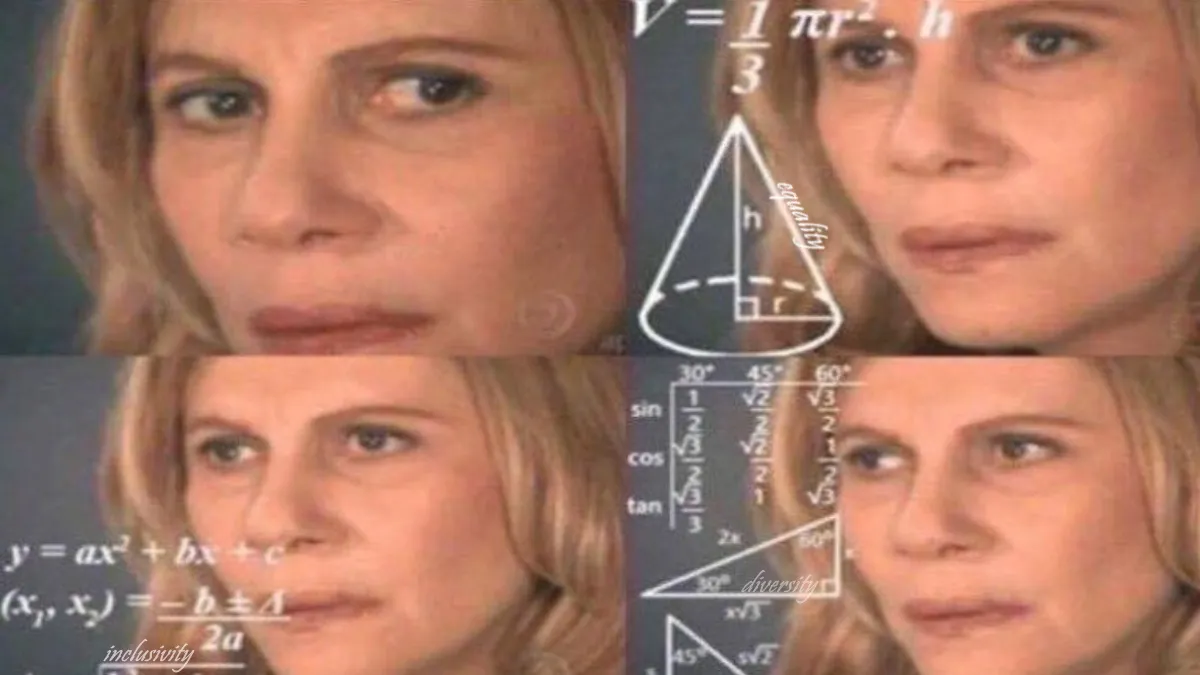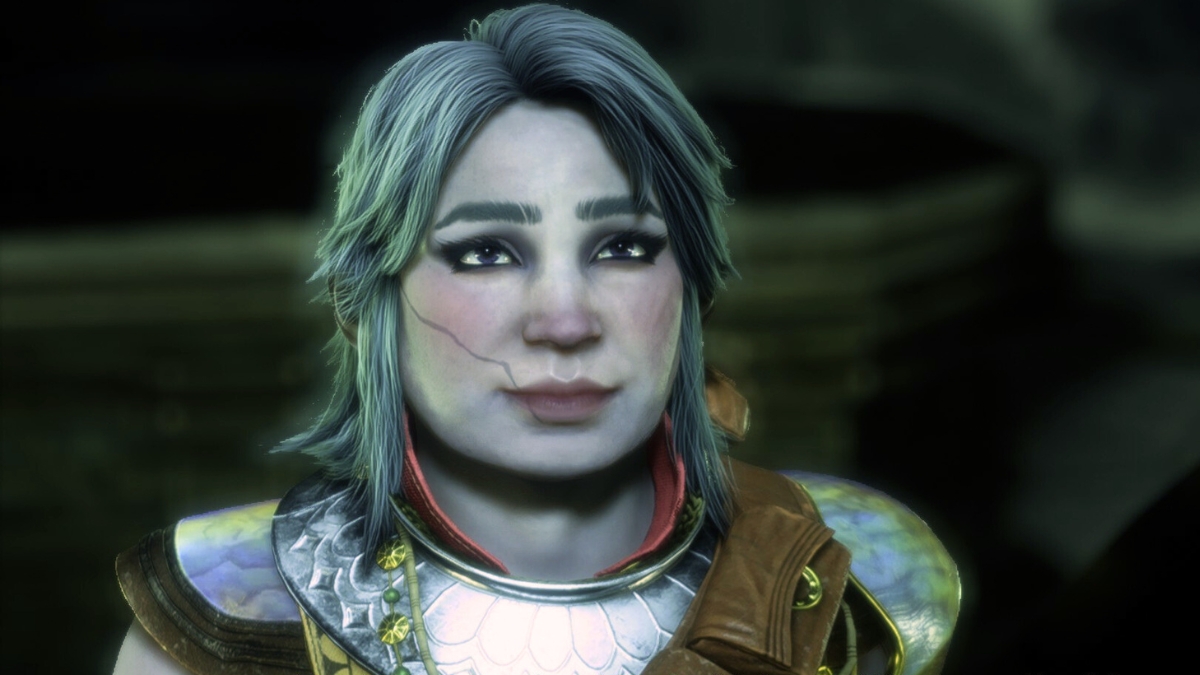To say that Activision Blizzard is a trash fire is probably an insult toward actual trash fires at this point. For the foreseeable future, bringing up the company is an instant reminder of terrible CEOs, walkouts, way too many sexual harassment/discrimination/labor lawsuits to keep up with, and attempts at rebranding where you count down how long the person lasts because the previous person stepped down after only a few months.
It’s the rebranding part that I’d like to draw your attention to as a blogpost on Activision Blizzard’s website revealed an attempt at being more inclusive in video games, and it’s … certainly something, like, the kind of something that sounds like it’s in a science fiction novel that involves men in lab coats attempting to study a new species, except the “species” is just … marginalized people … yeah this is really weird.
WTF is the Diversity Space Tool?
I first got wind of this story via this tweet from Fanbyte that calls the tool, quote, “fucking weird.”
Activision-Blizzard-King introduces a diversity tool to rate character diversity on metrics like gender identity and ethnicity and it’s fucking weird. https://t.co/3hEVydR4u2 pic.twitter.com/lSZLOwzCFY
— fanbyte (@FanbyteMedia) May 13, 2022
Fanbyte’s Imran Khan writes (after a reminder of Activision Blizzard’s track record), “when the company desperately needs to make fundamental changes in how they hire and treat diverse employees and public-facing characters, I’d argue the solution is not in making and publicizing a tool that boils diversity design down to pre-defined metrics.”
Pre-defined metrics? I know this company is at the “burn it all down and start from scratch” phase of their life cycle, but surely they aren’t actually introducing some kind of program to… rate character diversity, right?
And yet, that’s kind of what King is doing according to a blog post published yesterday on Activision-Blizzard’s website. The thrust is that employees at King — by their own admission, working off-hours — created a tool that breaks down character attributes and rates them on how diverse they are. The idea, the post argues, is to guard “against unconscious bias and exclusion when it came to the creation of their games and characters.”
These metrics listed are culture, race, age, cognitive ability, physical ability, body type, facial features/beauty, gender identity, sexual orientation, and socioeconomic background.
So they weren’t … paid to make this? They volunteered? And this is supposed to be seen as a … good thing? I had to double-check and yep, right there in the blog post, “According to King Globalization Project Manager Jacqueline Chomatas, once MIT handed over the basic software, the team at King spent the last few years honing and developing it, mostly as a volunteer effort. People were spending their off-hours working on the tool, simply because they believed in its potential so much.”

Turning back to said blog post, it starts out in the right direction. “We want to see ourselves represented in games, we want the barriers to access lowered, and we want games to be a welcoming environment for all.” This is all true. We do want more representation in games. “However, the question that does remain is this: How do we convert this feedback from collective desire into tangible reality?” Well, you can start by creating a space where marginalized folks feel safe enough to be in your presence considering the fact that the numerous lawsuits point to a frightening amount of discrimination and harassment and-
“The Diversity Space Tool is a measurement device, to help identify how diverse a set of character traits are and in turn how diverse that character and casts are when compared to the ‘norm’,” explains Chomatas. Once it establishes a baseline for typical character traits (which is done by the creative team working closely with DE&I experts), it can then weigh new character designs against it to measure their diversity. During this process, the tool can also uncover unconscious bias, such as why certain traits are seen as “male” vs. “female,” or why characters from certain ethnic backgrounds are given similar personalities or behaviors.

No seriously, WTF is this?
On top of the fact that a company is going through the trouble of making a diversity detector, said company thinks that this can, later, be incorporated into other forms of media. “The traits and measures are applicable to wider entertainment verticals including TV, film, and literature. The only change required if used in these verticals would be the baseline traits, which would need to be calibrated to be relevant to the genre and universe each character exists in.”
Chomatas admits that the application is still evolving – and, in fact, is designed to continuously evolve as “norms” shift and platforms change. In the end, you get out of it what you put into it, and what you choose to take from it.
“Like anything, this is simply a tool that provides insights,” says Chomatas. “It’s up to the teams that create the characters and games to apply them.”
“It’s up to the teams that create the characters and games to apply them,” you say? Wow, I had no idea that studios would have to WANT to be inclusive in order for them to have more diversity. If only there were vocal groups of marginalized people within the gaming community to point this out over and over and over again. As Khan over at Fanbyte said, “Diversity & Inclusion isn’t a vending machine that you keep popping effort tokens into until a badge that says ‘You can’t yell at me anymore’ pops out. It’s a sustained process that requires people at all levels to listen to people that are trying to make themselves heard.”
An additional note was added to the Activision Blizzard post after people online responded to their tool like:
I have had difficulty articulating the crass way games have approached diversity but The Activision/Blizzard Phrenology Character Creator really does sum it right up huh.
— wearing vintage Teletubbies crew jacket to a rave (@Papapishu) May 13, 2022
everyone is seeing the big header image on that actiblizz article, but it was looking at this bigger breakdown is what sent me into space pic.twitter.com/4U4ZKdVrUH
— austin walker (@austin_walker) May 13, 2022
activision blizzard measuring my diversity level pic.twitter.com/CO4cMJtKWw
— ✪ daniel barnes ✪ (@Danny8bit) May 13, 2022
The blog post now opens with the following statement. “There has been conversation online regarding the Diversity Space Tool, particularly concerning its intent and our commitment to diversity. We’ve edited this blog post to clarify that this prototype is not being used in active game development.”
Here is the rest of their statement.
Started in 2016, the Diversity Space Tool–currently in beta–was designed as an optional supplement to the hard work and focus our teams already place on telling diverse stories with diverse characters, but decisions regarding in-game content have been and will always be driven by development teams. The tool was developed at King, and has been beta tested by several developers across the company, all of whom have provided valuable input.
The objective of using the tool is to uncover unconscious bias by identifying existing norms in representation and acknowledging opportunities for growth in inclusion. It is not a substitute for any other essential effort by our teams in this regard, nor will it alter our company’s diversity hiring goals. Over the past several years, the development of the tool was done with the support of all our employee DE&I networks, and we collaborated with external partners to create an even more robust tool.
The tool isn’t meant to be used in isolation; teams would sit down with company DE&I staff to identify existing norms and then discuss, educate, consult, and collaborate on how a character’s representation is expressed beyond those norms. This process is intended to create a conversation where our developers, assisted by the tool, challenge assumptions, assess choices, and find opportunities for authentic representation to be fostered in our games.
Activision Blizzard is committed to reflecting the diversity of its millions of players around the world through representation and inclusion in its games as well as its employees. Our intent with this blog entry was to share an in-progress piece of our journey in this endeavor. We recognize and respect that all people may be on their own, unique point in their journey with DE&I. The Diversity Space Tool is not a definitive evaluation of diversity in game content; rather, it is a bridge in opening previously unspoken conversations into how thoughtful inclusion can happen – and thrive – in games.
I should note that the blog post has been edited, as according to an update from Fanbyte’s Andrea Shearon, the company did state that it had been tested on games like Call of Duty: Vanguard and even Overwatch 2. These games were mentioned in the “Sharing and Caring” section of the blog post, which originally said this:
“Alayna Cole, DE&I manager at Sledgehammer Games, says the tool was tested by developer teams working on Call of Duty: Vanguard, and it left a sizable impression. ‘We used [the Diversity Space Tool] to figure out what ‘more diversity’ looks like across all of our characters in both campaign multiplayer and Live seasons,’ says Cole. ‘And now we’re going to use that data going forward into the next games that we’re working on.’ The Overwatch 2 team at Blizzard has also had a chance to experiment with the tool, with equally enthusiastic first impressions.”
So it’s not like people online assumed it was being used out of thin air, we were told that Call of Duty: Vanguard and Overwatch 2 used it. Except, apparently, the Overwatch 2 team did NOT use this tool at all? According to… the Overwatch 2 team???
FWIW, the portion about Overwatch 2 was removed mostly because we’re not using it and didn’t know it existed until yesterday.
— Dylan Snyder 💙 (@chronofloss) May 14, 2022
God I swear our own company tries so hard to slaughter any good will the actual devs who make the game have built
— melissa kelly 💙 (@_mlktea) May 14, 2022
Overwatch doesn’t even use this creepy distopian chart, our writers have eyes. The artists: have eyes. Producers, directors, etc, as far as I know also all have eyes https://t.co/WEMRf8QmBu
So it’s not enough to have developed this kind of tool (voluntarily, because again, they “believe in it so much”), but you… lied about developers being excited about it? Like, you didn’t just spread misinformation about certain games using it, you said that an entire development team had “enthusiastic first impressions,” and the team… didn’t even know the tool existed!
Ah, Activision Blizzard, the company where I go in with a story angle in mind only to find out that it’s a lot worse than I thought.
(Featured image: meme using Senhora do Destino)
—The Mary Sue has a strict comment policy that forbids, but is not limited to, personal insults toward anyone, hate speech, and trolling.—










Published: May 17, 2022 11:41 am